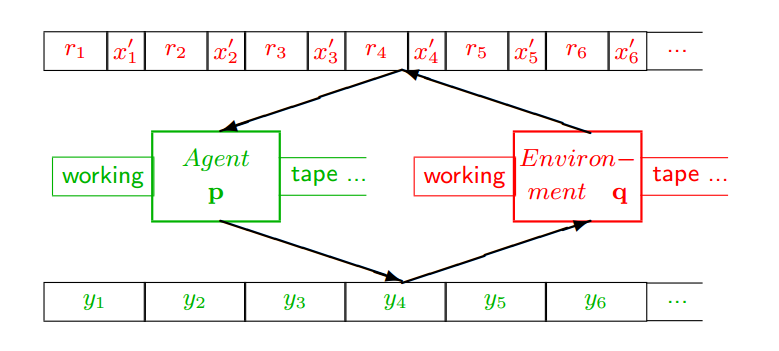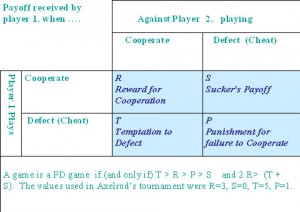Author: Mark Davis
12
Socialistic Roidrage
 Just when American politics appeared to be getting down to bare-fisted fighting we get a re-affirmation that political ideologies are largely religious from one of the papacy of modern conservatism, George Will, in his inane discovery of socialist tendencies in college football:
Just when American politics appeared to be getting down to bare-fisted fighting we get a re-affirmation that political ideologies are largely religious from one of the papacy of modern conservatism, George Will, in his inane discovery of socialist tendencies in college football:
The collective activity of team sports came after a great collective exertion, the Civil War, and two great social changes, urbanization and industrialization.
…
Progressives saw football as training managers for the modern regulatory state. Ingrassia says that a Yale professor, the social Darwinist William Graham Sumner (who was Camp’s brother-in-law), produced one academic acolyte who thought the “English race” was establishing hegemony because it played the “sturdiest” sports.
Ummm, sure, collectivism is like sports activity and, hell, like war or industry, where people collectively work collectively together towards some outcome. It’s almost like government itself, as one astute reader noted concerning the US Constitution:
“We the People of the United States, in Order to form a more perfect Union, establish Justice, insure domestic Tranquility, provide for the common defense, promote the general Welfare.” Those damned leftists!
Now, we might claim that George Will, confused by ‘roidrage, is just scrambling for material in his strange communist witch hunt, but this has profound implications for reinterpreting American history. For instance, until the Italian Fascists resurrected the old Roman outstretched arm salute that was then picked up as “Heil Hitler” by the Nazis, the Pledge of Allegiance was saluted by school children throughout America in the same way:
And, let’s not forget that Francis Bellamy, the author of the Pledge, was a Christian Socialist advocating the redistribution of wealth for the greater good of the American Christian people.
Will is right about all this sports nonsense.… Read the rest
Evolutionary Art and Architecture
With every great scientific advance there has been a coordinated series of changes in the Zeitgeist. Evolutionary theory has impacted everything from sociology through to literature, but there are some very sophisticated efforts in the arts that deserve more attention.
John Frazer’s Evolutionary Architecture is a great example. Now available as downloadable PDFs since it is out-of-print, Evolutionary Architecture asks the question, without fully answering it (how could it?), about how evolution-like processes can contribute to the design of structures:
And then there is William Latham’s evolutionary art that explores form derived from generative functions dating to 1989:
And the art extends to functional virtual creatures:
Things I don’t remember writing…in 1993
Just as the World Wide Web was beginning there was active experimentation in treating computer communications as an artistic medium. The following was perhaps the last of a small group of absurdists who wrote short stories, person-by-person and paragraph-by-paragraph, built around a central theme. And, interestingly, I don’t recall this one at all:
Recollections of Lady Liberty and the Joy of being an American XVI
“Did you really love her daddy?” My daughter’s scratchy voice squiggles
its way through the telephone line and plants itself in my ear.
“It was the kind of love that wraps itself around your heart and
squeezes like a snake… I know its too much to ask your forgiveness
but I’ll tell you my side of the story if you’ll listen”
“Ok, daddy, I’ll listen”
“Well, meeting your mom was an epiphany for me. At the time, let’s
see… how old are you now?”
“Eight, Daddy!” she giggled. She knew that I knew how old she was.
“Oh yeah, well, it was nine years ago now when I first saw your mom.
It was my first trip to New York, and I’d made a promise to your
grandma to go see the Statue of Liberty. The day was gorgeous,
sparkling, bustling. I had tickets to the 2 o’clock tour, and I showed
up a little early.”
“There were hundreds of people, tourists, milling about. And in the
center of them all was a beautiful young woman dressed in one of those
horrid green park service uniforms. Can you imagine it?!”
“Yes, Daddy! Keep going!”
Now and again, when the coffee boils over and she’s not there to pass
me the squeegee, I do indeed think back to my wife, my child’s
mother…and the great green lady who brought us together. … Read the rest
Universal Artificial Social Intelligence
Continuing to develop the idea that social reasoning adds to Hutter’s Universal Artificial Intelligence model, below is his basic layout for agents and environments:
A few definitions: The Agent (p) is a Turing machine that consists of a working tape and an algorithm that can move the tape left or right, read a symbol from the tape, write a symbol to the tape, and transition through a finite number of internal states as held in a table. That is all that is needed to be a Turing machine and Turing machines can compute like our every day notion of a computer. Formally, there are bounds to what they can compute (for instance, whether any given program consisting of the symbols on the tape will stop at some point or will run forever without stopping (this is the so-called “halting problem“). But it suffices to think of the Turing machine as a general-purpose logical machine in that all of its outputs are determined by a sequence of state changes that follow from the sequence of inputs and transformations expressed in the state table. There is no magic here.
Hutter then couples the agent to a representation of the environment, also expressed by a Turing machine (after all, the environment is likely deterministic), and has the output symbols of the agent consumed by the environment (y) which, in turn, outputs the results of the agent’s interaction with it as a series of rewards (r) and environment signals (x), that are consumed by agent once again.
Where this gets interesting is that the agent is trying to maximize the reward signal which implies that the combined predictive model must convert all the history accumulated at one point in time into an optimal predictor.… Read the rest
Multitudes and the Mathematics of the Individual
 The notion that there is a path from reciprocal altruism to big brains and advanced cognitive capabilities leads us to ask whether we can create “effective” procedures that shed additional light on the suppositions that are involved, and their consequences. Any skepticism about some virulent kind of scientism then gets whisked away by the imposition of a procedure combined with an earnest interest in careful evaluation of the outcomes. That may not be enough, but it is at least a start.
The notion that there is a path from reciprocal altruism to big brains and advanced cognitive capabilities leads us to ask whether we can create “effective” procedures that shed additional light on the suppositions that are involved, and their consequences. Any skepticism about some virulent kind of scientism then gets whisked away by the imposition of a procedure combined with an earnest interest in careful evaluation of the outcomes. That may not be enough, but it is at least a start.
I turn back to Marcus Hutter, Solomonoff, and Chaitin-Kolmogorov at this point. I’ll be primarily referencing Hutter’s Universal Algorithmic Intelligence (A Top-Down Approach) in what follows. And what follows is an attempt to break down how three separate factors related to intelligence can be explained through mathematical modeling. The first and the second are covered in Hutter’s paper, but the third may represent a new contribution, though perhaps an obvious one without the detail work that is needed to provide good support.
First, then, we start with a core requirement of any goal-seeking mechanism: the ability to predict patterns in the environment external to the mechanism. This is well-covered since Solomonoff in the 60s who formalized the implicit arguments in Kolmogorov algorithmic information theory (AIT), and that were subsequently expanded on by Greg Chaitin. In essence, given a range of possible models represented by bit sequences of computational states, the shortest sequence that predicts the observed data is also the optimal predictor for any future data also produced by the underlying generator function. The shortest sequence is not computable, but we can keep searching for shorter programs and come up with unique optimizations for specific data landscapes. And that should sound familiar because it recapitulates Occam’s Razor and, in a subset of cases, Epicurus’ Principle of Multiple Explanations.… Read the rest
Reciprocity and Abstraction
 Fukuyama’s suggestion is intriguing but needs further development and empirical support before it can be considered more than a hypothesis. To be mildly repetitive, ideology derived from scientific theories should be subject to even more scrutiny than religious-political ideologies if for no other reason than it can be. But in order to drill down into the questions surrounding how reciprocal altruism might enable the evolution of linguistic and mental abstractions, we need to simplify the problems down to basics, then work outward.
Fukuyama’s suggestion is intriguing but needs further development and empirical support before it can be considered more than a hypothesis. To be mildly repetitive, ideology derived from scientific theories should be subject to even more scrutiny than religious-political ideologies if for no other reason than it can be. But in order to drill down into the questions surrounding how reciprocal altruism might enable the evolution of linguistic and mental abstractions, we need to simplify the problems down to basics, then work outward.
So let’s start with reciprocal altruism as a mere mathematical game. The iterated prisoner’s dilemma is a case study: you and a compatriot are accused of a heinous crime and put in separate rooms. If you deny involvement and so does your friend you will each get 3 years prison. If you admit to the crime and so does your friend you will both get 1 year (cooperation behavior). But if you or your co-conspirator deny involvement while fingering the other, one gets to walk free while the other gets 6 years (defection strategy). Joint fingering is equivalent to two denials at 3 years since the evidence is equivocal. What does one do as a “rational actor” in order to minimize penalization? The only solution is to betray your friend while denying involvement (deny, deny, deny): you get either 3 years (assuming he also denies involvement), or you walk (he denies), or he fingers you also which is the same as dual denials at 3 years each. The average years served are 1/3*3 + 1/3*0 + 1/3*3 = 3 years versus 1/2*1 + 1/2*6 = 3.5 years for admitting to the crime.
In other words it doesn’t pay to cooperate.… Read the rest
Science, Pre-science, and Religion
 Francis Fukuyama in The Origins of Political Order: From Prehuman Times to the French Revolution draws a bright line from reciprocal altruism to abstract reasoning, and then through to religious belief:
Francis Fukuyama in The Origins of Political Order: From Prehuman Times to the French Revolution draws a bright line from reciprocal altruism to abstract reasoning, and then through to religious belief:
Game theory…suggests that individuals who interact with one another repeatedly tend to gravitate toward cooperation with those who have shown themselves to be honest and reliable, and shun those who have behaved opportunistically. But to do this effectively, they have to be able to remember each other’s past behavior and to anticipate likely future behavior based on an interpretation of other people’s motives.
Then, language allows transmission of historical patterns (largely gossip in tight-knit social groups) and abstractions about ethical behaviors until, ultimately:
The ability to create mental models and to attribute causality to invisible abstractions is in turn the basis for the emergence of religion.
But this can’t be the end of the line. Insofar as abstract beliefs can attribute repetitive weather patterns to Olympian gods, or consolidate moral reasoning to a monotheistic being, the same mechanisms of abstraction must be the basis for scientific reasoning as well. Either that or the cognitive capacities for linguistic abstraction and game theory are not cross-applicable to scientific thinking, which seems unlikely.
So the irony of assertions that science is just another religion is that they certainly share a similar initial cognitive evolution, while nevertheless diverging in their dependence on faith and supernatural expectations, on the one hand, and channeling the predictive models along empirical contours on the other.… Read the rest
Bloodless Technonomy
 The last link provided in the previous post leads down a rabbit hole. The author translates a Chinese report and then translates the data into geospatial visualizations and pie charts, sure, but he also begins very rapidly to layer on his ideological biases. He is part of the “AltRight” movement with a focus on human biodiversity. The memes of AltRight are largely racially charged, much less racist, defined around an interpretation of Darwinism that anoints difference and worships a kind of biological determinism. The thought cycles are large, elliptical constructs that play with sociobiology and evolutionary psychology to describe why inequities exist in the human world. Fair enough, though we can quibble over whether any scientisms rise far enough out of the dark waters of data to move policy more than a hair either way. And we can also argue against the interpretations of biology that nurtured the claims, especially the ever-present meme that inter-human competition is somehow discernible as Darwinian at all. That is the realm of the Social Darwinists and Fascists, and the realm of evil given the most basic assumptions about others. It also begs explanation of cooperation at a higher level than the superficial realization that kin selection might have a role in primitive tribal behavior. To be fair, of course, it has parallels in attempts to tie Freudian roles to capitalism and desire, or in the deeper contours of Marxist ideology.
The last link provided in the previous post leads down a rabbit hole. The author translates a Chinese report and then translates the data into geospatial visualizations and pie charts, sure, but he also begins very rapidly to layer on his ideological biases. He is part of the “AltRight” movement with a focus on human biodiversity. The memes of AltRight are largely racially charged, much less racist, defined around an interpretation of Darwinism that anoints difference and worships a kind of biological determinism. The thought cycles are large, elliptical constructs that play with sociobiology and evolutionary psychology to describe why inequities exist in the human world. Fair enough, though we can quibble over whether any scientisms rise far enough out of the dark waters of data to move policy more than a hair either way. And we can also argue against the interpretations of biology that nurtured the claims, especially the ever-present meme that inter-human competition is somehow discernible as Darwinian at all. That is the realm of the Social Darwinists and Fascists, and the realm of evil given the most basic assumptions about others. It also begs explanation of cooperation at a higher level than the superficial realization that kin selection might have a role in primitive tribal behavior. To be fair, of course, it has parallels in attempts to tie Freudian roles to capitalism and desire, or in the deeper contours of Marxist ideology.
But this war of ideologies, of intellectual histories, of grasping at ever-deeper ways of reinterpreting the goals and desires of political actors, might be coming to an end in a kind of bloodless, technocratic way. Specifically, surveillance, monitoring, and data analysis can potentially erode the theologies of policy into refined understandings of how groups react to changes in laws, regulations, incentives, taxes, and entitlements.… Read the rest




